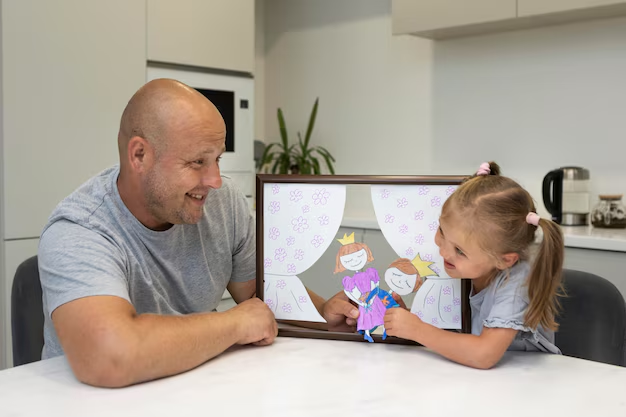Parenting is a journey, one filled with joy, challenges, and countless learning moments. At every stage, children have unique needs, and the way parents respond can profoundly influence their emotional, social, and cognitive development. Positive parenting, an approach based on encouragement, understanding, and respect, has been shown to foster healthy parent-child relationships and promote a child’s well-being. Whether you’re raising a toddler, a teenager, or a child in between, positive parenting strategies can help create an environment of trust and support that nurtures a child’s growth.
What is Positive Parenting?
Positive parenting focuses on reinforcing good behavior through praise and rewards, while also addressing negative behavior with patience, empathy, and consistent discipline. The idea is to guide children in a way that supports their emotional and developmental needs while setting healthy boundaries. By building strong, positive relationships, parents can encourage their children to become responsible, kind, and confident individuals.
Effective Strategies for Every Stage of Parenting
1. Positive Parenting for Infants and Toddlers (0-3 years)
The early years are a critical time for a child’s development. Infants and toddlers are in the process of learning how to interact with the world and form relationships with their caregivers. At this stage, the key to positive parenting is providing a secure, loving environment where children feel safe to explore.
- Establish Routines: Babies and toddlers thrive on consistency. Regular feeding times, nap times, and bedtime routines help children feel secure.
- Model Gentle Communication: Babies respond to tone of voice and facial expressions. Using a calm, soothing tone and maintaining eye contact helps foster emotional connections.
- Encourage Exploration: Support your child’s natural curiosity by providing safe, engaging toys and environments for them to explore.
- Respond to Needs Promptly: Whether it’s hunger, discomfort, or just needing a hug, responding quickly to your child’s needs builds trust and emotional security.
2. Positive Parenting for Preschoolers (3-5 years)
Preschoolers begin to develop more independence and communication skills, but they still need guidance. At this stage, children start to understand emotions, rules, and social expectations.
- Set Clear Boundaries: Preschoolers are learning about right and wrong. Use simple, clear language to explain rules and expectations. Consistency is key, as children this age benefit from knowing what is expected of them.
- Encourage Positive Behavior: Instead of only focusing on what your child shouldn’t do, praise them for positive behaviors. If they share with a friend, be sure to acknowledge it.
- Provide Choices: Giving your child small choices—like picking out their own clothes or choosing between two snacks—can foster independence and self-confidence.
- Teach Emotional Regulation: Help your child recognize and label their emotions. Use moments of frustration as learning opportunities to practice calming strategies, like deep breathing.
3. Positive Parenting for School-Age Children (6-12 years)
As children enter school, they begin to interact with a broader social world, including peers and teachers. This stage is crucial for developing social skills, responsibility, and academic curiosity.
- Foster Open Communication: Keep the lines of communication open by showing genuine interest in your child’s schoolwork, friendships, and feelings. Avoid over-scheduling, so your child has time to unwind and talk.
- Encourage Responsibility: Give your child age-appropriate tasks and chores to build their sense of responsibility. Praise their efforts and emphasize the value of hard work.
- Set Realistic Expectations: Children at this age may feel pressure from school, extracurricular activities, and social situations. Set realistic expectations based on their unique strengths and interests, not comparisons to others.
- Use Positive Discipline: Instead of punitive measures, use positive discipline strategies like time-outs, loss of privileges, or the opportunity to make amends when rules are broken.
4. Positive Parenting for Teenagers (13-18 years)
The teenage years can be a time of rebellion, self-discovery, and testing boundaries. Though this phase can be challenging for both parents and teens, positive parenting strategies can help maintain a strong, healthy relationship.
- Show Respect for Independence: Teenagers need space to make their own decisions and experience consequences. Give them more autonomy while still offering guidance when necessary.
- Be a Role Model: Teens are keenly aware of their surroundings and often learn through observation. Exhibit the behaviors you want to see in them, whether it’s managing stress, resolving conflicts, or handling disappointment.
- Listen Actively: Rather than offering advice right away, listen to your teen’s concerns without judgment. Sometimes, they just need to feel heard and understood.
- Maintain Boundaries, but Be Flexible: It’s important to establish boundaries, but understand that teens are in a phase of testing limits. Be consistent with rules, but also flexible enough to allow for reasonable exceptions based on maturity and trust.
General Principles of Positive Parenting
While strategies differ depending on the child’s age, several principles remain consistent throughout the different stages of parenting:
- Empathy and Understanding: Understanding your child’s perspective can help you respond to their needs in a compassionate, constructive way.
- Patience: Parenting requires patience. Children, regardless of age, need time to learn and grow. Celebrate small victories and keep calm during setbacks.
- Consistency: Consistency in rules, expectations, and positive reinforcement helps children feel secure and understand the consequences of their actions.
- Connection Over Correction: Building a strong emotional connection through quality time, praise, and encouragement will lead to positive behavioral change, often more effectively than strict discipline.
Conclusion
Positive parenting is not about perfection—it’s about showing love, understanding, and support while guiding your child through every stage of development. By maintaining a positive approach, you can create an environment that encourages growth, resilience, and self-esteem, ultimately leading to a strong, healthy relationship with your child. Remember, each child is unique, and so your parenting approach should be flexible and tailored to their needs, yet grounded in the principles of love, respect, and positive reinforcement.

